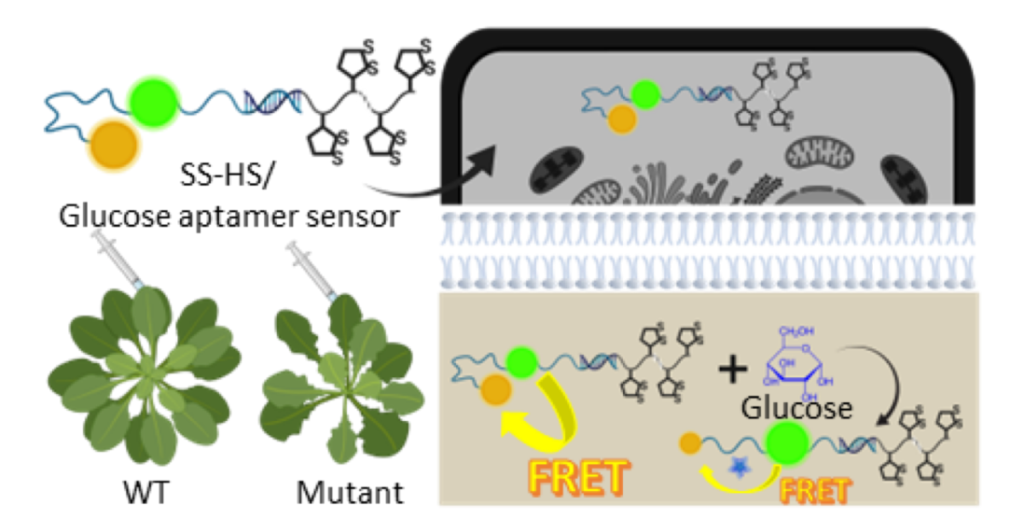Efficient Delivery of a DNA Aptamer-Based Biosensor into Plant Cells for Glucose Sensing through Thiol-Mediated Uptake
Themes: Conversion, Feedstock Production
Keywords: Genomics
Citation
Mou, Q., Xue, X., Ma, Y., Banik, M., Garcia, V., Guo, W., Wang, J., Song, T., Chen, L.Q., Lu, Y. June 29, 2022. “Data for Efficient Delivery of a DNA Aptamer-Based Biosensor into Plant Cells for Glucose Sensing through Thiol-Mediated Uptake.” University of Illinois Urbana-Champaign. DOI: 10.13012/B2IDB-6284123_V1.
Overview

DNA aptamers have been widely used as biosensors for detecting a variety of targets. Despite decades of success, they have not been applied to monitor any targets in plants, even though plants are a major platform for providing oxygen, food, and sustainable products ranging from energy fuels to chemicals, and high-value products such as pharmaceuticals. A major barrier to progress is a lack of efficient methods to deliver DNA into plant cells. We herein report a thiol-mediated uptake method that more efficiently delivers DNA into Arabidopsis and tobacco leaf cells than another state-of-the-art method, DNA nanostructures. Such a method allowed efficient delivery of a glucose DNA aptamer sensor into Arabidopsis for sensing glucose. This demonstration opens a new avenue to apply DNA aptamer sensors for functional studies of various targets, including metabolites, plant hormones, metal ions, and proteins in plants for a better understanding of the biodistribution and regulation of these species and their functions.
Data
- Oligonucleotide Sequences